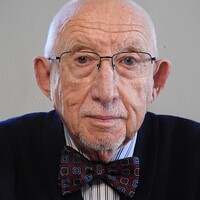If you don't know about the stress air traffic controllers are reportedly under, then maybe you are an air traffic controller.
The fact is that air traffic controllers love what they do — love it and wouldn't do anything else.
The stress comes with long hours, Federal Aviation Administration bureaucracy and a general lack of recognition, not with moving airplanes safely about the sky.
Of course, I haven't interviewed every controller, but I have talked to a lot of them over the years and have been in many control towers.
Controllers love the essentiality of it. They love aviation in all its forms.
They love the man-and-machine interface, which is at the heart of modern aviation. They love the sense of being part of a great system — the power, the language, the satisfaction.
They love the trust that every pilot puts in them. It is rewarding to be trusted in anything, but more so when the price of failure is known.
Nearly everything that is true of pilots is true of controllers. At its heart, the job is about flight, arguably the greatest achievement of mankind, the fulfillment of millennia of yearning.
There is a saying often attributed to Winston Churchill that was actually said by a pilot and insurance executive in the 1930s: "Aviation in itself is not inherently dangerous. But to an even greater degree than the sea, it is terribly unforgiving of any carelessness, incapacity or neglect."
That is true both of pilots and those at the consoles on the ground, who co-fly with them.
After President Ronald Reagan fired more than 11,000 striking controllers in 1981, some of the saddest people I knew were air traffic controllers.
They were denied the right to do the work they loved and suffered immeasurably for that. A few were able to get work overseas, but mostly it was a light that went out and stayed out.
I ran into one former controller, working as a baggage handler. He said he just wanted to be near the action even if he couldn't go into the tower anymore and do his dream job.
My only major criticism of Reagan has always been that he didn't rehire the strikers after he had won, proving that they were wrong in striking illegally and that they weren't above the law.
Reagan was a compassionate man, but he showed the controllers no compassion. I think if he had understood the psychological pain he had inflicted, he would have relented.
Controllers have explained to me that if a controller finds the job stressful, then he or she shouldn't be a controller.
About one-third of the candidates for controllers' school, most of whom are trained at the FAA Academy in Oklahoma City flunk out.
It takes longer to train a controller than a pilot — maybe not to work in the cockpit of a passenger jet, but certainly to fly an aircraft, including jets. It takes at least four years of schooling, simulator and then supervised controlling to qualify to be an FAA controller. Some controllers come from the military.
There is just one movie about air traffic control, released in 1999, "Pushing Tin." It flopped at the box office but has a cult following among pilots and controllers. It is funny and accurate. Pushing tin is controllers' jargon for what they do: push airplanes around the sky.
The fabled stress, in my mind, is the adrenaline factor. It is present in air traffic control, and it is present in the cockpit of everything that leaves the ground, from single-engine Cessnas to Boeing 777s — and in ATC facilities.
It interests me that pilots never mention stress. It is, however, always mentioned by people writing about or talking about air traffic control. I would venture that the most stress controllers deal with is the stress imposed on them by the FAA.
I will aver that in the government shutdown, the largest source of stress for controllers was how they were going to put food on the table and pay their bills, not the stress they feel at the console, pushing tin and keeping flying safe. Now they are stressed about back pay.
Llewellyn King is executive producer and host of "White House Chronicle" on PBS. His email is [email protected]. To find out more about Llewellyn King and read features by other Creators Syndicate writers and cartoonists, visit the Creators Syndicate website at www.creators.com.
Photo credit: Ruby Khoesial at Unsplash






View Comments